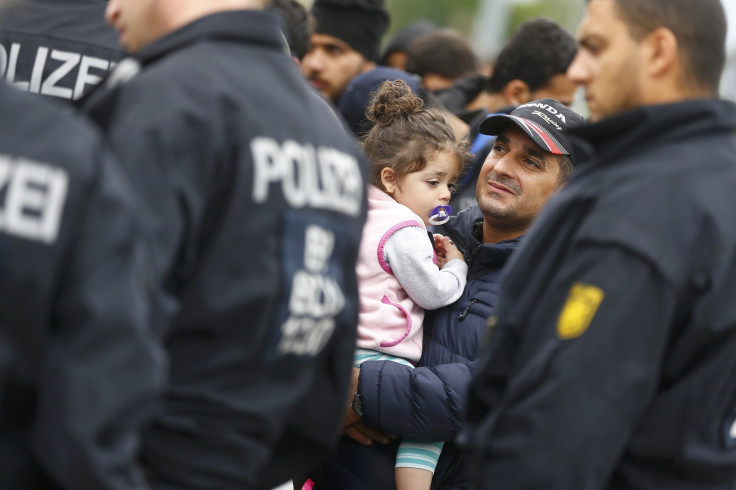Refugee Crisis: Germany's Teachers Prepare To Teach Syrian Children

The young Iraqi girl, whose hand was being held by Marlis Tepe, wept as she described how her brother was executed. Tepe, the chairwoman of Germany’s teacher’s union, still gets emotional when she recalls the moment. “You can imagine how traumatic that is,” said Tepe. “It’s very sad to see this and this is a big challenge for teachers.”
Germany has estimated that this year it will take in 800,000 refugees fleeing conflicts and repressive authorities in Syria, Iraq, Afghanistan and Eritrea, among other countries. Many of those refugees have young children. It remains unclear how many children have entered Germany amid the current wave of refugees, according to Rudi Tarneden, spokesman for Unicef Germany. However, some estimates place the number of refugee children and youth at a third of the refugee population.
Germany’s teachers and educators are dealing with the influx by trying to provide German language courses and counseling to young refugees who have experienced traumatic events. But a lack of teachers qualified to teach German as a second language plus uncertainty over the numbers of refugees still coming into the country continue to pose major challenges.
North Rhine-Westphalia, which borders the Netherlands and is Germany’s most populous state, has taken in thousands of refugees, many of whom crossed into Germany from Hungary. Dorothea Schäfer, the teacher's union chairwoman for the region, said there were approximately 40,000 children and other young refugees who could enter schools in the region.
“We have special teachers but not enough who are able to teach German to children not born in Germany,” said Schäfer. Ideally one teacher trained to teach German as a second language would work with a group of 15 students. However, Schäfer said that number would be difficult to maintain and that teachers without training would most likely have to step in to fill the gap.
Tepe said both a lack of government spending and a lack of qualified teachers will be two of the major problems for Germany in the years ahead. School funding in Germany comes from the state level. The German government has estimated that the cost of caring for and integrating refugees into society could be as high as 3.3 billion euros ($3.72 billion) in 2016. Germany's Federal Ministry of Education Research said it is working to expand a reading program and providing an app to help refugees learn German, according to a statement issued Monday.
Additionally, Germany needs teachers with training in trauma. “We need more social workers in schools and doctors with special knowledge,” said Schäfer. Although no figures were available, Schäfer said she has heard estimates of every third child needing help to talk about traumatic issues.
“It’s necessary for teachers to learn and be open minded and warm hearted enough, but on the other hand have professional distance,” said Tepe, describing working with youth who have experienced trauma.
Germany’s education system has been consistently ranked among the top in the world, and the country has dealt with influxes of refugees in the past, including after World War II and the Yugoslav Wars from the early 1990s until 2001 that led to the breakup of Yugoslavia.
The Berger Feld Comprehensive School, with 1,400 students and a large campus in the North Rhine-Westphalia city of Gelsenkirchen, may soon take on refugees from the latest wave. The decision lies with town leaders.
“We have to deal with this problem, of course, because we have a lot of refugees nearby,” said English teacher Christian Krabbe, noting that finding housing for refugees remains the first priority.
Known for its sports programs, the Berger Feld School has had experience with refugee populations for the last 20 years with some of the most famous alumni, including Arsenal soccer player Mesut Özil, coming from immigrant families. The school has prioritized getting students to attend classes on a regular basis and teaching the German language as soon as possible using specifically trained teachers.
Krabbe has seen firsthand how children who fled wars have needed extra support at school. He described calming down a student who had experienced trauma during the Yugoslav wars. “It’s not as important to teach mathematics formulas, but to be good human beings,” he said, describing the need to help students cope.
While placing refugees in schools will take time, both Krabbe and Schäfer said they thought Germany would meet the challenge.
“It’s not easy and it’s a big challenge, but I think such a country as Germany should manage it,” Schäfer said.
© Copyright IBTimes 2025. All rights reserved.






















